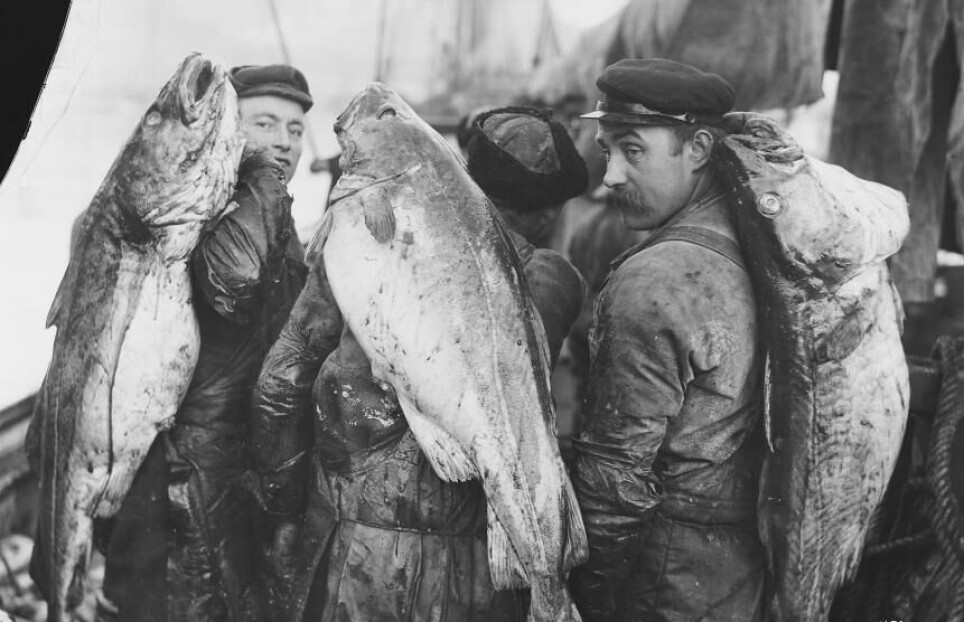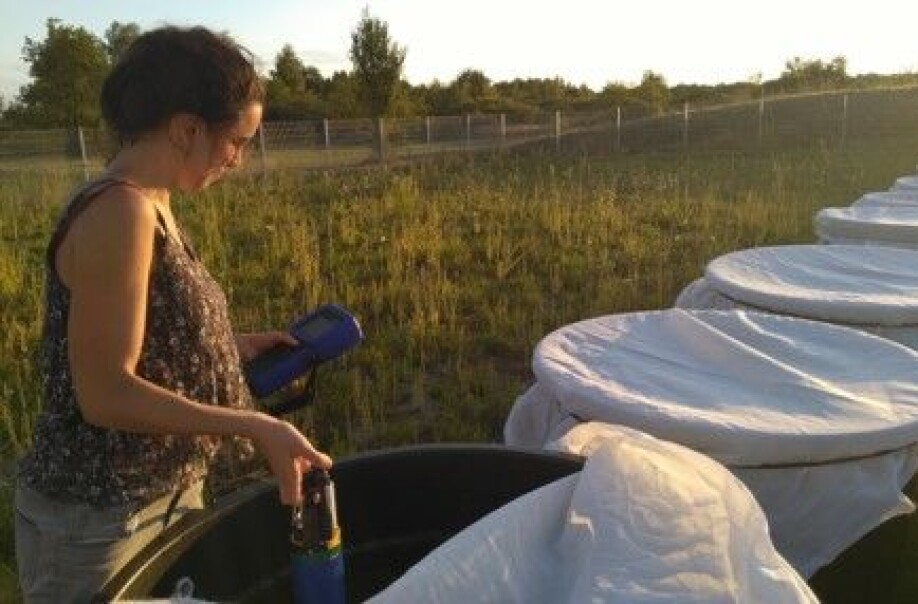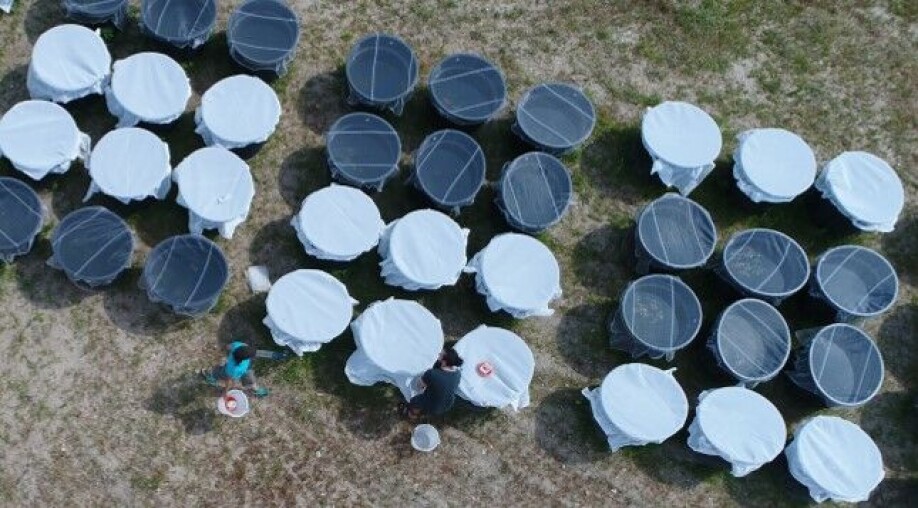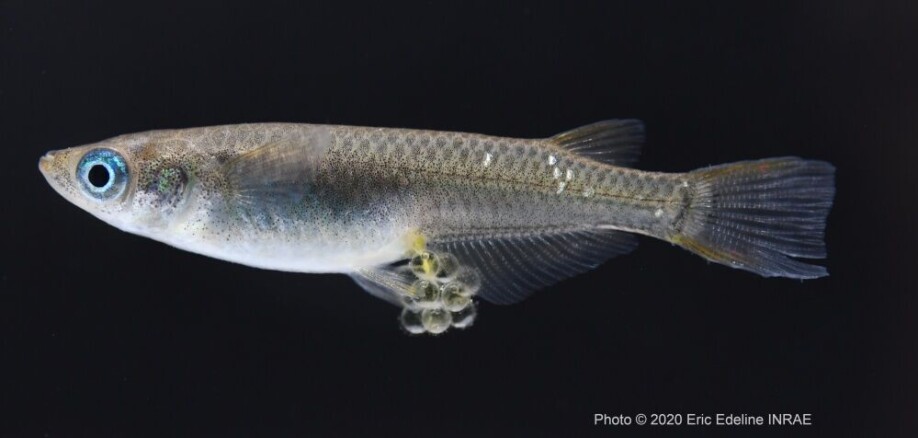THIS ARTICLE/PRESS RELEASE IS PAID FOR AND PRESENTED BY University of Oslo - read more

Size selective fishing can ruin chance of catching big fish in the future
Fishermen have always competed to get the biggest fish. New research show that this has a negative, long term impact on the whole ecosystem.
Who hasn´t heard an old uncle or grandfather boast about how big the fish was in the old days? They often claim that things were better before, but in the case of fish it seems to be true.
Several scientific reports state that overall, the size of the fish, both in freshwater and in seawater is smaller, sometimes much smaller, than what they used to be. Nevertheless, recreational, and commercial fisheries go on, just like before. The goal is still to catch the biggest fish.
Over the years fisheries have simply removed the bigger catch from the gene pool. Smaller fish with slow growth and early maturity get to reproduce and transmit their genes. This means that fishing-induced selection toward small body size is genetic. The situation is thus hard to reverse, now that we start to understand how we have affected evolution.

Small fish affect the whole ecosystem
Science has followed the situation for some time now, documenting the changes as time goes on. A new question, that few so far have had a closer look at, is what the change in size has to say for the rest of the environment? Will the change in size on a population level change other factors, and will that be possible to measure?
One of the researchers who set out to investigate this was Charlotte Evangelista, postdoctoral fellow at the Department of Biosciences at the University of Oslo.
“We knew that fish is getting smaller, but we did not know the effect on higher levels of organization, such as the structure of prey communities and the functioning of the ecosystem. Body size is a key trait that correlates with fish’s life history and metabolism for instance. The role of a fish in the environment will change when the body size is changed,” Evangelista explains.
Larger fish eats larger prey. If the whole fish population is smaller this will affect what is being eaten.
The big, bold fish are on the hook
According to Evangelista body size also correlates with behavior.
The smaller fish might need to hide from more predators, risking to end up as dinner.
Because of this, they might end up eating different things, and having a different role in the ecosystem, but there is also another factor:
“Bold individuals are more active, and forage more than shy individuals, which often make them more exposed to fishing. When they are removed, only shy individuals remain, says Evangelista. In recreational fishing even the hooks are designed to get the bigger fish,” she continues.
Shy behavior and smaller size in fish affect the plant life as well because the metabolism changes. Smaller fish eat less food and excrete less nutrients where they are hiding. This means that the distribution and the amount of nutrients will change with the body size of the fish.
Mimicking the effect of fishing
“It is hard to assess the effects of fishing-induced evolution in the wild, because natural populations are impacted by multiple factors, like pollution or climate change, that act simultaneously. This means that we must use an experimental approach that allows us to focus on the specific effects of size-selective fishing,” says Evangelista.
The experiment Evangelista wanted to do is to check how two size selected lines of the fish Medaka (Oryzias latipes) would do, compared with each other. One line of fish was selected over 10 generations in a way that was mimicking the effect of fishing.
This means that the bigger individuals were removed from each generation, and only the smaller fish got to reproduce.
In the other line, the researchers mimicked natural selection, which tends to favor bigger individuals. For each of the 10 generations the bigger fish got to reproduce. The size selection experiment was conducted under strict laboratory conditions to ensure that life-history differences between the two lines were genetically, rather than environmentally, induced.
As expected, under strict laboratory conditions, fish from the fishing line grew slower and matured earlier than fish from the other line.
When they had the two lines, the next part of the experiment started: To see how the fish would do in a real-life experiment. This was done in semi-natural ponds, called mesocosms, in France at Centre for Experimental and Predictive Ecology, CEREEP-Ecotron Ile De France.
The outdoor ponds were filled with filtered water from a lake, supplied with real sediments containing insects, small animals, zooplankton with a given volume, and algae that naturally live in these waters. In short, the ponds were made as real as possible, but under controlled conditions.

Fishing gives less juveniles
To begin with, the environment was the same in the different ponds. Then they added the fish and let them live in the ponds for three months. The population density in the ponds were not the same: either 3 or 12 adult fish were added.
“We looked at the primary production (i.e., the biomass of algae), the nutrient concentrations in the water column, and the whole metabolism of the ecosystem, and we counted all fish, animals, and insects,” says Evangelista.
All the fish was also counted every two weeks during the whole experiment. Adult fish that were initially added in the pond had a colour mark so that they could be recognized individually. The fish differentiated between larvae, juvenile and adult – since the fish were reproducing. After three months all the fish were captured and measured to see if there were size differences.
“At the start of the experiment, we added fish with the same starting size from both lines into the ponds,” explains Evangelista.
“We thought that the fish from the fishing line would grow slower, but they had the same growth. We think that more natural conditions alleviate the response of fish to artificial selection. The biggest difference between the two lines was that there were fewer juveniles in ponds with fish from the fishing line. This was in particular clear in ponds where fish density and thus competition was high.”

Size-selected fish are more vulnerable
This difference can mean that high fishing pressure for bigger size can make the fish less able to cope with high population density later.
This is interesting because it means that if we stop fishing, and the density of fish increases it makes it even worse for the remaining fish," says Evangelista.
The fish also changed their feeding behavior and those from the fishing line were less able to find prey hidden in the sediments.
“This is something that can affect the survival in the future. If fish have a more restricted diet, they are less able to cope with a change in the prey type, which makes them more vulnerable to prey fluctuations.”
Evangelista underlines that these effects also need to be tested and observed in nature before they can conclude. The effect also has to be tested on several species. Medaka is mostly used as a model organism in research, and different species might have different reactions to the selection pressure.
Ecosystem changes of fish size
In the experiment they also changed how much light that reached the waters. Normally a lot of light would lead to an overgrowth of algae, but in the ponds where the fish were selected for fishing this did not happen.
“We didn´t observe any effects of the light, probably because these fish were not able to control and hunt the small macroinvertebrates that graze on the algae,” says Evangelista.
In the ponds with normal fish the algae were thriving because the fish were able to eat the animals that ate the algae.
“This can have a systemic effect in the long run, says Evangelista. It is always difficult to translate the results from a small, controlled environment to a large environment, but we should increase the studies of the ecological effects of fishing and the consciousness to this problem,” says Evangelista.
In the end she has one advise for those who love fishing and for the industry:
“Stop focusing on the biggest fish,” she says.
The take home message is that the very size selecting fishing we have today can ruin your grandchildren’s chance of catching big fish, but it might also change the whole ecosystem.
Reference:
Charlotte Evangelista et.al.: Ecological ramifications of adaptation to size-selective mortality. Royal Society Open Science, October 2021.
See more content from the University of Oslo:
-
Mainland Europe’s largest glacier may be halved by 2100
-
AI makes fake news more credible
-
What do our brains learn from surprises?
-
"A photograph is not automatically either true or false. It's a rhetorical device"
-
Queer opera singers: “I was too feminine, too ‘gay.’ I heard that on opera stages in both Asia and Europe”
-
Putin’s dream of the perfect family





































